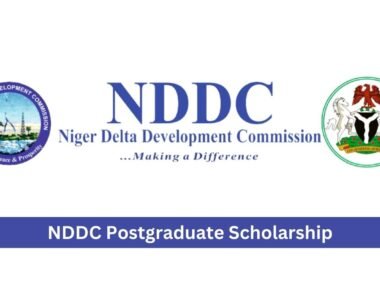Oxford University, a symbol of academic brilliance, attracts students from all over the world with its illustrious past, innovative research, and esteemed reputation. Although attending Oxford can be a life-changing experience for international students, the high tuition and living expenses can be intimidating. Thankfully, Oxford Scholarships for International Students offer a way to realize this goal.
These scholarships help gifted people pursue undergraduate, graduate, or doctoral degrees. They range from fully funded awards to partial bursaries. This thorough guide examines the various scholarships that are offered, along with their requirements, application procedures, and advice on how to get money for your Oxford education in 2025 and beyond.
Why Oxford Scholarships Matter
It takes a substantial academic and financial commitment to pursue a degree at Oxford University. Tuition fees for international students can range from £28,950 to £44,240 per year for 2025–2026, depending on the course; living expenses can range from £12,000 to £18,000 annually; and other costs, such as travel and visas, may also be incurred. By easing these financial strains, Oxford Scholarships for International Students enable students from a variety of backgrounds to pursue an education.
These scholarships provide life-changing advantages in addition to monetary assistance. They give access to Oxford’s unmatched academic resources, such as its esteemed faculty, state-of-the-art research facilities, and active intellectual community. Recipients gain access to leadership positions and career opportunities by joining a global network of scholars. Recipients’ resumes and professional credibility are improved by scholarships such as the Rhodes and Clarendon, which also honor academic achievement and societal impact.
Oxford Scholarships for International Students also promote global perspectives and cross-cultural interaction. Oxford’s academic environment is enhanced by the diverse experiences that scholars bring to the university. These scholarships enable people to make significant contributions to their communities by helping students from underdeveloped or low-income nations, which is in line with Oxford’s mission to promote global leadership and knowledge.
Types of Oxford Scholarships For International Students
Oxford University provides a variety of international student-focused scholarships, each with special requirements and advantages. Using the most recent data available for the 2025–2026 academic year, we examine the most well-known Oxford Scholarships for International Students below.
Rhodes Scholarship
One of the oldest and most prominent scholarships, the Rhodes Scholarship, provides financial aid to outstanding international students attending Oxford for graduate work. It was founded in 1902 and seeks out people who have demonstrated exceptional academic achievement, leadership potential, and a dedication to making a positive impact on society. The scholarship, which is open to students from more than 20 countries—including the US, Canada, India, and some African countries—covers full tuition, return airfare, visa fees, and a living stipend of about £18,180 per year.
Candidates must submit their applications to the Rhodes Trust by deadlines that vary by nation (usually July to October 2025). The selection process places a strong emphasis on leadership, academic achievement, and a commitment to global change. Applications for 2025–2026 open in the middle of 2025, and the Rhodes Trust website has comprehensive guidelines.
Clarendon Scholarship
For graduate students, the Clarendon Scholarship is a fully funded award that includes tuition and a sizeable living grant (£17,668 for 2025–2026). It supports Oxford master’s and DPhil students in all fields and is open to students of all nationalities. Academic merit is the scholarship’s top priority, and applicants who apply for their course by the applicable December or January deadline (depending on the program) are automatically considered.
Candidates are chosen based on their academic performance and potential; no separate application is needed. The Clarendon Fund is one of the most accessible Oxford Scholarships for International Students, with an annual target of 130 to 150 scholars. In 2025, selection usually takes place from February to June.
Reach Oxford Scholarship
The Reach Oxford Scholarship is intended for undergraduates from low-income or developing nations who encounter political or financial obstacles to their education back home. Countries on the OECD Development Assistance Committee’s list are eligible. Depending on the course, the scholarship pays for living expenses, tuition, college fees, and one return ticket annually for three or four years.
By October 15, 2025, applicants must be accepted to Oxford via UCAS, and by February 12, 2026, they must submit a separate scholarship application. Financial need, academic achievement, and the desire to return home after study are given top priority during the selection process. This scholarship is competitive, which emphasizes how important a strong application is.
Weidenfeld-Hoffmann Scholarships and Leadership Programme
Graduate students from developing and emerging nations are supported by this scholarship, which emphasizes academic achievement and leadership development. It pays for master’s degrees in subjects like law, development studies, and public policy, as well as full tuition and a living allowance (£18,622 for 2025–26). Candidates must apply by the applicable course deadline (December 2025 or January 2026) and show a dedication to tackling global issues.
For aspiring leaders, the Weidenfeld-Hoffmann program offers networking opportunities, leadership training, and mentoring. Oxford’s funding pages provide information on how to submit a separate application.
China Oxford Scholarship Fund (COSF)
The China Oxford Scholarship Fund supports master’s and doctoral students from China, Hong Kong, and Macau. Partial to full funding covers living expenses and tuition. By April 15, 2025, applications must be submitted directly to COSF. Priority is given to first-year graduate students, and candidates must demonstrate both academic excellence and financial need. Detailed guidelines will be made available on the COSF website in December 2024.
Other Scholarships and Bursaries
Oxford also offers course-and college-specific scholarships, like the Felix Scholarship for students from India and other developing countries and the Crankstart Scholarship (up to £6,090 annually) for students from low-income families in the UK and ROI. Additionally, outside scholarships like the Commonwealth Scholarship are offered. Students can use Oxford’s Fees, Funding, and Scholarship Search tool and the websites of the colleges and departments to find additional opportunities.
Eligibility and Application Process
Fulfilling certain eligibility requirements and completing a demanding application process are necessary to obtain Oxford Scholarships for International Students. The general and scholarship-specific requirements, important steps, and 2025–2026 deadlines are listed below.
General Eligibility
Most Oxford scholarships prioritize academic excellence, requiring strong grades (e.g., a first-class or high upper-second-class degree for graduate applicants or equivalent for undergraduates). Leadership, community involvement, and financial need are also common criteria. International students must typically hold an offer of admission to Oxford before applying for scholarships, except for specific awards like the Rhodes, which have separate processes.
Scholarship-Specific Requirements
Rhodes Scholarship: Open to students aged 19–25 (or up to 28 for specific regions) from eligible countries. Candidates must demonstrate leadership and a commitment to service.
Clarendon Scholarship: Open to all nationalities; no age limit. Selection is based solely on academic merit.
Reach Oxford Scholarship: Restricted to nationals of OECD DAC-listed countries. Applicants must show financial need and intent to return home after studies.
Weidenfeld-Hoffmann: Targets students from developing/emerging economies with a focus on leadership and global impact.
COSF: Limited to students from China, Hong Kong, or Macau with demonstrated financial need.
Application Process
Apply for Admission: Submit your course application via UCAS (undergraduate) by October 15, 2025, or the graduate application form by the December/January deadline for your program. Admission is a prerequisite for most scholarships.
Check Scholarship Eligibility: Use Oxford’s Fees, Funding, and Scholarship Search tool to identify relevant scholarships. Review college and department websites for additional awards.
Submit Scholarship Applications: Some scholarships (e.g., Rhodes, Reach Oxford, Weidenfeld-Hoffmann) require separate applications. Follow specific guidelines on the scholarship’s official website.
Meet Deadlines: Key dates include UCAS (October 15, 2025), Reach Oxford (February 12, 2026), Rhodes (July–October 2025, country-specific), and COSF (April 15, 2025). Clarendon applicants are automatically considered if they apply by the course deadline.
Prepare Supporting Documents: Most scholarships require academic transcripts, references, a personal statement, and evidence of financial need or leadership. Tailor your materials to each scholarship’s criteria.
Key Deadlines for 2025-26
UCAS (Undergraduate): October 15, 2025
Graduate Course Applications: December 2025 or January 2026 (varies by course)
Reach Oxford: February 12, 2026
Rhodes: July–October 2025 (country-specific)
Weidenfeld-Hoffmann: December 2025/January 2026
COSF: April 15, 2025
For precise deadlines and requirements, visit Oxford’s official funding pages or scholarship-specific websites.
Tips for a Successful Scholarship Application
It takes careful planning to create an application that stands out for Oxford Scholarships for International Students. Here are some essential tactics to improve your chances:
Showcase Academic Excellence
Oxford places a high value on academic achievement. Keep your GPA high (3.7/4.0 or above), and emphasize in your application any pertinent coursework, research, or honors. Publications or presentations can help you build your profile for graduate scholarships.
Demonstrate Leadership and Impact
Leadership is valued by scholarships such as Rhodes and Weidenfeld-Hoffmann. Give specific instances of projects you have spearheaded, such as volunteer work, student organizations, or professional contributions. Stress your dedication to bringing about constructive change.
Craft a Compelling Personal Statement
Your statement should connect your academic objectives, life experiences, and future ambitions coherently. Adapt it to the goal of the scholarship (e.g., societal impact for Reach Oxford, global leadership for Rhodes). Steer clear of generalizations and be genuine.
Secure Strong References
Select references who are familiar with you and who can attest to your character and academic abilities. To make sure their letters are impactful and targeted, give them information about the scholarship.
Optimize for ASEO
To improve discoverability, naturally include the term “Oxford Scholarships For International Students” in your application materials, particularly in essays or online profiles. To appeal to search algorithms and selection committees, make sure your statement is succinct, clear, and in line with scholarship requirements.
Prepare for Interviews
Interviews are part of some scholarships, such as the Rhodes. Work on clearly stating your objectives, leadership background, and motivations for attending Oxford. Examine the scholarship’s principles to make sure your answers reflect them.
Apply Early and Thoroughly
To prevent technical difficulties, submit applications well in advance of the due date. Verify eligibility and requirements again to make sure they are complete. To look into every funding option, use Oxford’s scholarship search tool.
Challenges and Solutions
Because of the intense competition and intricate procedures, applying for Oxford Scholarships for International Students can be difficult. We discuss typical problems and their fixes below:
High Competition
Challenge: Scholarships like Rhodes and Reach Oxford attract thousands of applicants for limited spots.
Solution: Focus on what makes you unique. Highlight niche skills, regional challenges you’ve overcome, or innovative contributions to your field. Tailor applications to stand out.
Financial Documentation
Challenge: Scholarships requiring proof of financial need (e.g., Reach Oxford, COSF) may be difficult for students from informal economies.
Solution: Work with local authorities or organizations to obtain verifiable documentation. Contact Oxford’s admissions office for guidance on acceptable formats.
Navigating Multiple Applications
Challenge: Managing course and scholarship applications simultaneously can be overwhelming.
Solution: Create a timeline with deadlines for UCAS, course applications, and scholarship submissions. Use tools like spreadsheets to track requirements and progress.
Language and Cultural Barriers
Challenge: Non-native English speakers may struggle with personal statements or interviews.
Solution: Seek feedback from mentors or use language editing services to polish your application. Practice interview responses to build confidence.
Limited Awareness of Opportunities
Challenge: Some students miss lesser-known scholarships due to reliance on general searches.
Solution: Explore Oxford’s Fees, Funding, and Scholarship Search tool, college websites, and external platforms like Scholars4Dev for comprehensive listings.
Conclusion
With the help of Oxford Scholarships for International Students, gifted people can pursue their academic and career goals at one of the most prominent universities in the world. These opportunities serve a variety of backgrounds and goals, ranging from the fully funded Rhodes and Clarendon scholarships to targeted awards like Reach Oxford and Weidenfeld-Hoffmann. You can improve your chances of receiving funding by being aware of your eligibility, crafting compelling applications, and strategically handling obstacles.
Start now by looking through Oxford’s scholarship search engine, going over the requirements for eligibility, and beginning to draft your application. You can become an Oxford scholar and advance leadership and knowledge worldwide if you put in the necessary effort and preparation. Visit Oxford’s official funding pages or websites dedicated to scholarships, such as the Rhodes Trust or COSF, for the most recent information. Take advantage of this chance to change your future; your Oxford journey is waiting for you.







